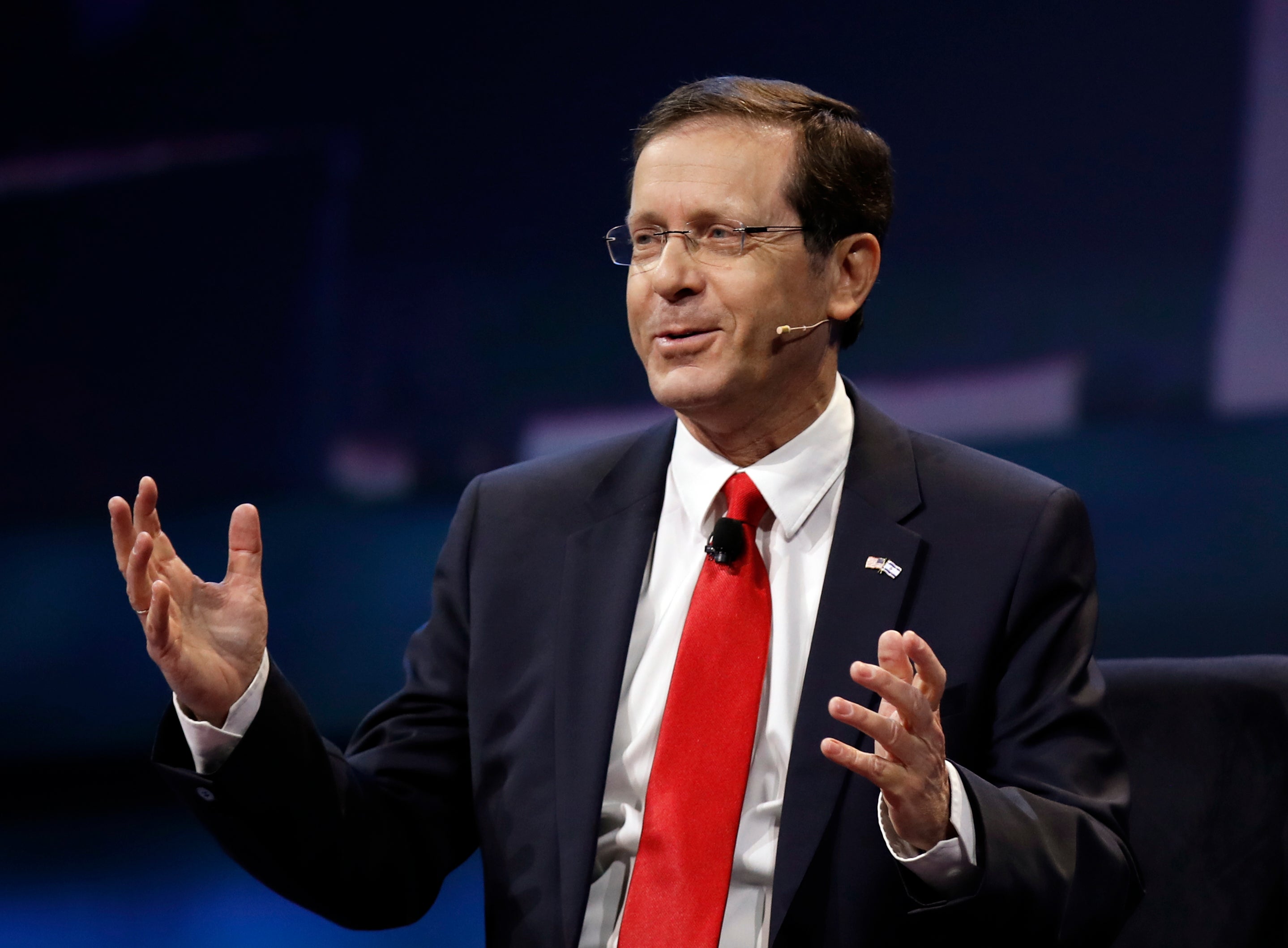Israeli lawmakers to vote for next figurehead president
The Israeli parliament is set to choose the country’s next president

Your support helps us to tell the story
From reproductive rights to climate change to Big Tech, The Independent is on the ground when the story is developing. Whether it's investigating the financials of Elon Musk's pro-Trump PAC or producing our latest documentary, 'The A Word', which shines a light on the American women fighting for reproductive rights, we know how important it is to parse out the facts from the messaging.
At such a critical moment in US history, we need reporters on the ground. Your donation allows us to keep sending journalists to speak to both sides of the story.
The Independent is trusted by Americans across the entire political spectrum. And unlike many other quality news outlets, we choose not to lock Americans out of our reporting and analysis with paywalls. We believe quality journalism should be available to everyone, paid for by those who can afford it.
Your support makes all the difference.The Israeli parliament Wednesday is set to choose the country's next president, a largely figurehead position that is meant to serve as the nation's moral compass and promote unity.
The election will be conducted at the Knesset Israel’s parliament, and the 120 lawmakers will cast their votes anonymously.
Two candidates are running — Isaac Herzog, a veteran politician and scion of a prominent Israeli family, and Miriam Peretz, an educator who is seen as a down-to-earth outsider.
Herzog, 60, is a former head of Israel’s Labor Party and opposition leader who unsuccessfully ran against Israeli Prime Minister Benjamin Netanyahu in the 2013 parliamentary elections.
He is scion of a prominent Zionist family. His father, Chaim Herzog, was Israel’s ambassador to the United Nations before being elected president. His uncle, Abba Eban, was Israel’s first foreign minister and ambassador to the United Nations and United States. His grandfather was the country’s first chief rabbi.
Herzog has served as head of the Jewish Agency, a nonprofit that works closely with the government to promote immigration to Israel, for the past three years since resigning from parliament. Given his deep ties to the political establishment, he is widely seen as the favorite to win.
Peretz, 67, is seen as a more conservative, nationalist candidate.
She immigrated from Morocco as a child and has worked as a teacher, educator and lecturer on Judaism, Zionism and grief. Two of her sons died serving in the Israeli military. In 2018 she was awarded the Israel Prize, the country's top award, for lifetime achievement.
If elected, Peretz would be the first woman to hold the office and also the first settler. She and her family lived in one of Israel’s settlements in the Sinai Peninsula until a peace treaty was struck with Egypt in 1979 and the territory was returned. Peretz then moved to the West Bank settlement of Givat Zeev, just north of Jerusalem where she lives today.
Most of the world considers Israel’s West Bank settlements illegal under international law and an obstacle to peace with the Palestinians, who seek the territory as part of a future state.
To win, a candidate must receive at least 61 votes in the 120-seat Knesset. If neither does, a second round of voting will be held. Once elected, the country’s 11th president will hold office for a single seven-year term starting July 9.
The winner will succeed President Reuven Rivlin, who is set to leave office next month, and the new president will take office at a politically crucial time.
The president, while largely a ceremonial head of state, is tasked with tapping a political party leader to form governing coalitions after parliamentary elections.
Israel has held four national elections in the past two years amid a protracted political crisis.
Prime Minister Benjamin Netanyahu's opponents faced a midnight deadline Wednesday to put together a new coalition government. If they fail, the country could be plunged into another election campaign.
The president also has the power to grant pardons — creating a potentially sensitive situation as Netanyahu stands trial for a series of corruption charges.